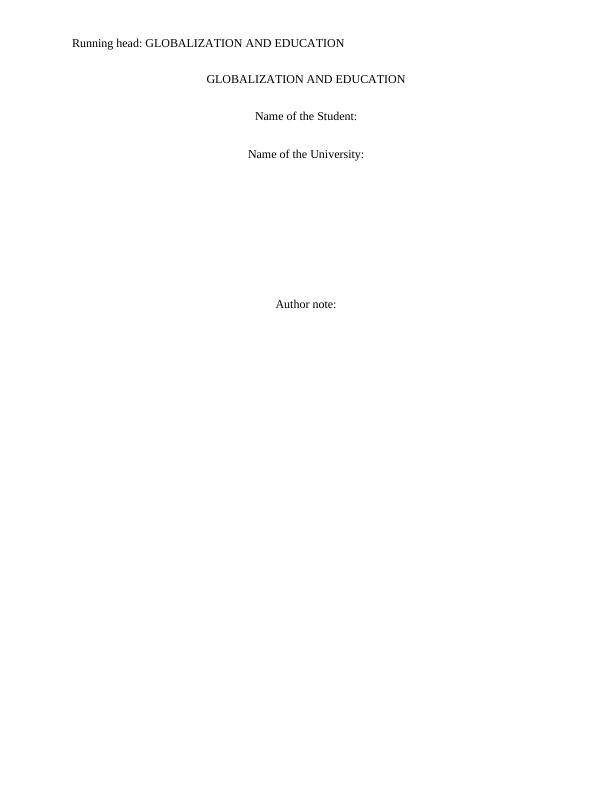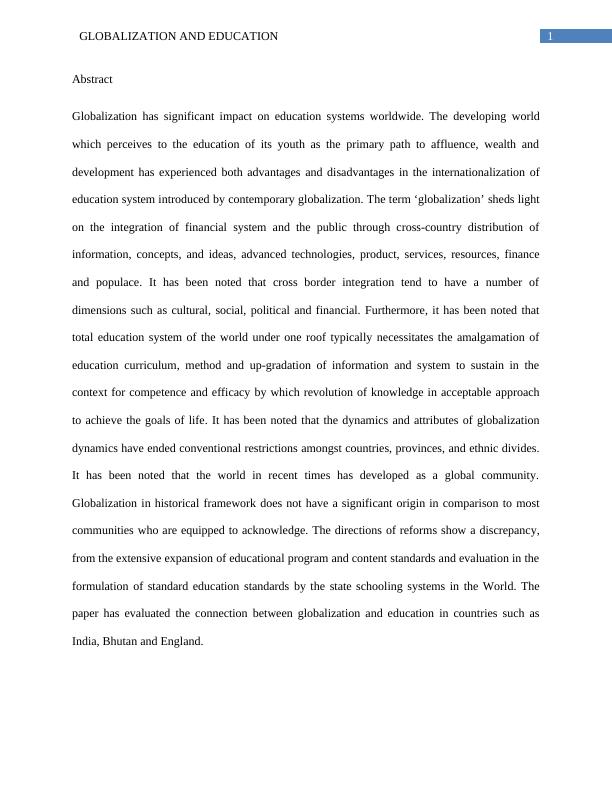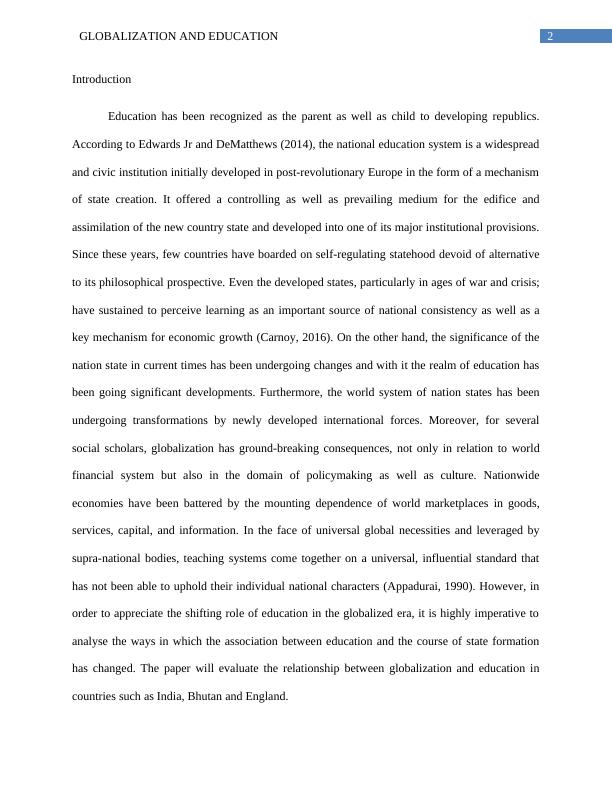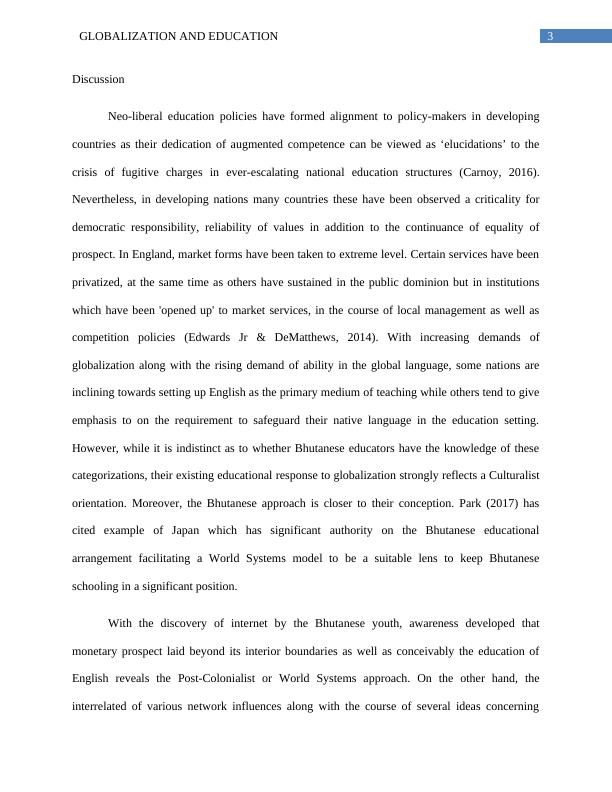Globalization and Education
14 Pages3784 Words67 Views
Added on 2023-03-23
About This Document
This article discusses the impact of globalization on education systems worldwide, focusing on countries like India, Bhutan, and England. It explores the advantages and disadvantages of internationalization in education and the need for curriculum integration and upgradation.
Globalization and Education
Added on 2023-03-23
ShareRelated Documents
End of preview
Want to access all the pages? Upload your documents or become a member.
Learning and Teaching in Global Communities
|14
|4168
|113
Perceived Costs and Benefits of Adopting International Accounting Standards in Asian Countries
|9
|2694
|62
Facilitation of Globalization, Challenges Faced by EU, Quality Measures for Sustainable Globalization, and Corruption Ranking
|7
|2081
|255
Socialism and Fascism: A Comparative Analysis
|4
|643
|103
Comparison of Educational System Between Australia, Vietnam and Nepal
|8
|2139
|130
Personal Insight: Evaluating Competencies for the Informers Job Cluster
|14
|2408
|194




